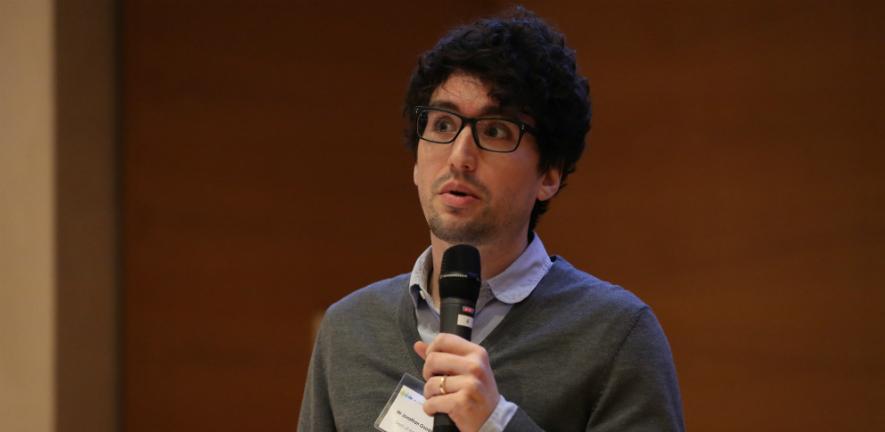
Submitted by Jane Durkin on Thu, 21/05/2020 - 10:29
Jonathan R. Goodman is a doctoral student at the Leverhulme Centre for Human Evolutionary Studies researching human social evolution, mimicry, and the evolution of exploitative behaviours. He is particularly interested in understanding why communication is so complex across species, and how some aspects of communication are exploited, through mimicry or other tactics, for Darwinian purposes. Prior to his PhD he worked as a postgraduate researcher in evolutionary biology at City University of New York, and more recently completed an EPSRC-funded fellowship at the Institute of Global Health Innovation, Imperial College London, where he applied some elements of his research to the public health sphere.
Jonathan will be presenting on his research on the role of accent in human social signalling at the Cambridge Language Sciences Symposium for Early-Career Researchers on 18 June 2020.
Twitter @jonathnrgoodman
My research sets out to help us understand some aspects about how people use language, and how some elements of language, such as accents, have been important over the course of our evolutionary history. I’m especially interested in understanding why language is so complex — how and why, for example, did accents of languages like English become so varied, and why do we tend to place so much importance on the accents people have? I think there’s a lot more to the story than language just being used for communication, and I think that putting language in terms of evolution — and even comparing how we communicate with how other organisms interact — can help illuminate this.
I’m involved in a number of projects now, some of which involve modelling and others collecting data, but I spend my time in Cambridge between my department — the Leverhulme Centre for Human Evolutionary Studies — and the phonetics lab. I live in London so this involves commuting up (under normal circumstances, anyway), but try to spend as much time as possible interacting with other researchers at the university. Collecting data for this project, which has involved recordings participants we’ve recruited in our accents study, is definitely the most hands-on work I’ve been involved in, and we needed to develop an entirely new way of testing our hypotheses about language — which was a really fun and challenging task.
The most interesting day I've had so far was when I presented our initial findings at my department’s “Pecha Kucha” session — where each presenter had to give their talk in exactly 5 minutes, with the presentation’s slides automatically changing every 20 seconds! It was a lot harder than any of us suspected, but was also a great learning experience.
I hope my research will lead us to better understand how and why there is so much linguistic diversity in the world — and how communication has affected our social evolution as a species. I’ve got a diverse set of interests that center around the evolutionary sciences, and hope, over the coming years, to develop each of them using the interdisciplinary skills I’m picking up during my PhD.
Cambridge has been a fascinating place to work for so many reasons, but for me the most important quality has been the ease of conducting interdisciplinary research. My supervisor works across several areas, and I’m interested in doing the same — and I just can’t think of any other place that I could meet so many people in anthropology, ecology, and linguistics who are interested in boundary-breaking questions. It’s been a unique and challenging experience, and I’m looking forward to developing this project over the coming years.
